Publications
Articles, publications, books, tools and multimedia features from the U.S. Institute of Peace provide the latest news, analysis, research findings, practitioner guides and reports, all related to the conflict zones and issues that are at the center of the Institute’s work to prevent and reduce violent conflict.
Colombia: Trip Report on Armed Conflict and Society
A Current Issues Briefing Co-sponsored by the U.S. Institute of Peace and the Washington Office on Latin America. Featured remarks from Congressman James P. McGovern (D-Massachusetts).
In the Field: Colombia
The Religion and Peacemaking program at USIP visited Colombia in November 2008 to support a joint-initiative of the Conferencia de Religiosos y Religiosas de Colombia, the organizing body of Catholic men’s and women’s religious orders, and Justapaz, a Menonite organization, to convene a four-day workshop outside of Bogota for Catholic and Protestant women peacemakers. This workshop provided an opportunity for women doing peace work on the ground through their churches to share best practices,...
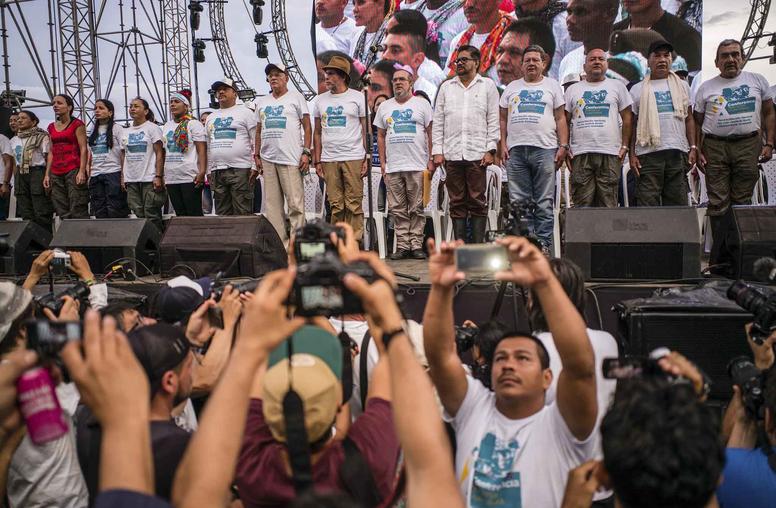
Will Colombia's 2018 Elections Imperil Peace?
The April 9 arrest and extradition request of former senior Revolutionary Armed Forces of Colombia (FARC) commander and peace negotiator Jesús Santrich highlights the complex challenges Colombia faces in the implementation of the historic November 2016 peace agreement with the FARC. Over a year and a half since the signing of the agreement, Colombia finds itself in one of the most critical moments in its efforts to definitively put to rest over five decades of armed conflict that has left more than 8.5 million victims in its wake. Frustrations surrounding the mixed results in the implementation of the peace agreement are exacerbated by the natural uncertainty over the upcoming May 27 presidential elections and its policy impact.
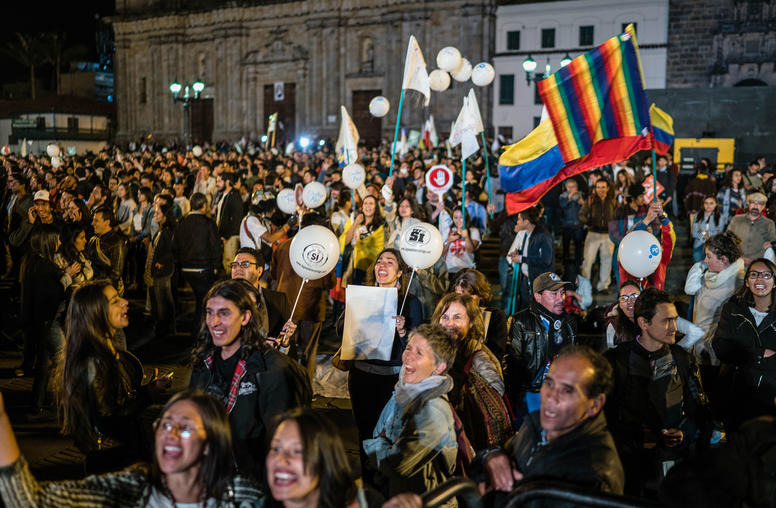
Colombia’s Imperfect Peace Could Provide a Roadmap for Afghanistan
The Afghan peace process was jumpstarted in September 2018 when President Trump appointed Ambassador Zalmay Khalilzad as special representative for Afghanistan reconciliation. Since then, Khalilzad has led 10 rounds of U.S.-Taliban talks, with negotiations focusing on two issues: ensuring the Taliban’s commitment to prevent transnational terrorists from using Afghanistan as a base for attacks, and a U.S. military withdrawal. As the search for peace in Afghanistan continues, what lessons can be learned from other peace processes that could apply to Afghanistan? Colombia’s imperfect peace agreement with the FARC is one especially relevant international reference point for Afghanistan—we explain why.
On the Issues: Colombia
Image on right: In Bogota's main square, relatives and friends of kidnapped people by the FARC march to demand the release of all the hostages. (AP Photo) In January 2008, two Colombian hostages who had been held by the FARC guerilla group were freed in an agreement brokered by Venezuelan President Hugo Chavez. However, more than 700 hostages remain, including former presidential candidate Ingrid Betancourt and three U.S. citizens. Ginny Bouvier is a senior program officer in USIP’s Gran...
Handling Conflict by Peaceful Means
USIP leaders explain the effect that events around the world and here at home will have on the U.S., and the contributions the Institute can and does make during a time of tremendous challenge – and opportunity.
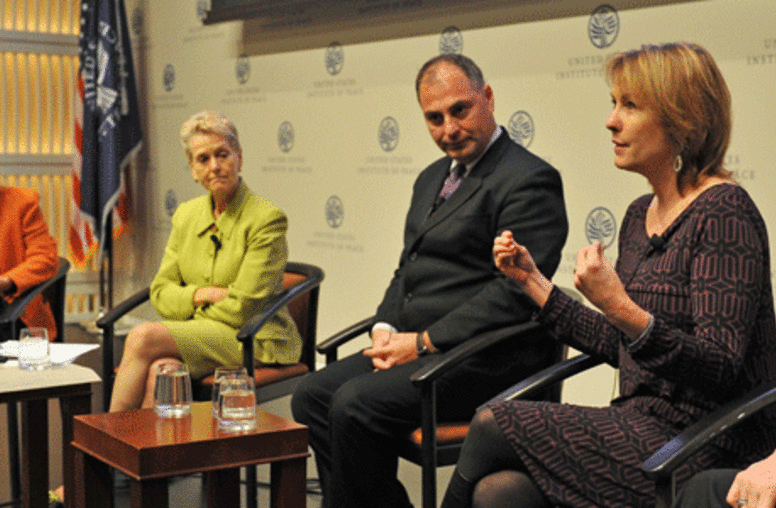
Gender and Peacebuilding: Highlights from 2011 and Looking Ahead to 2012
Gender and Peacebuilding Center Director, Kathleen Kuehnast, discusses USIP's focus on women's equality in 2011 and looks ahead at the gender projects USIP will work on in 2012.
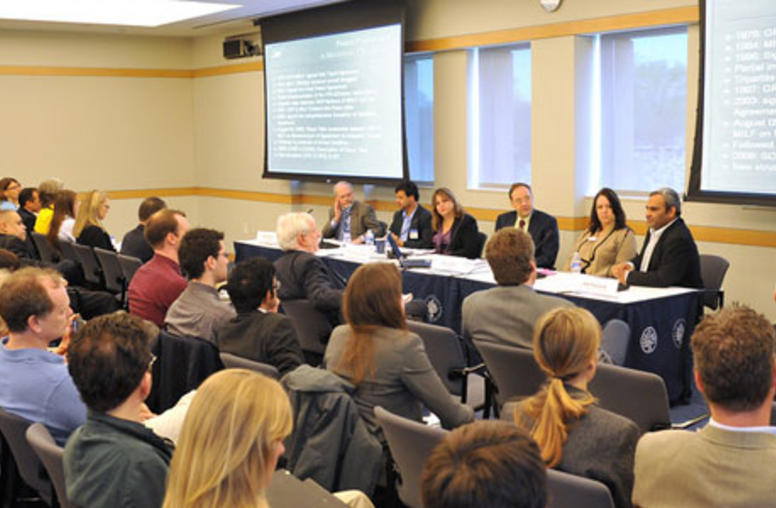
Peacekeeping without Guns
Experts on nonviolent peacekeeping presented their methodologies, lessons learned, and the way forward for the innovative field at the U.S. Institute of Peace (USIP) on March 21, 2012.
Summit of the Americas
The theme of the sixth summit of the Americas to be held in Cartagena, Colombia from April 14-15, 2012, is “Connecting the Americas: Partners for Prosperity.” USIP's Colombia expert, Virginia Bouvier, previews the summit.
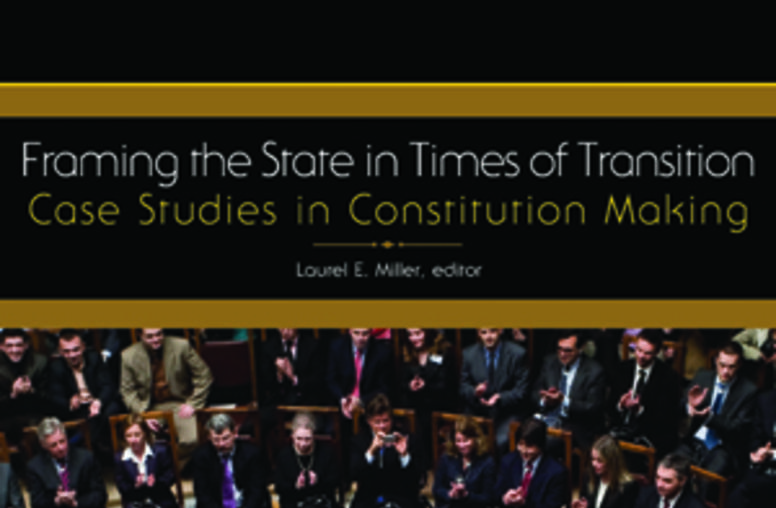
Framing the State in Times of Transition
Analyzing nineteen cases, Framing the State in Times of Transition offers the first in-depth, practical perspective on the implications of constitution-making procedure, and explores emerging international legal norms.